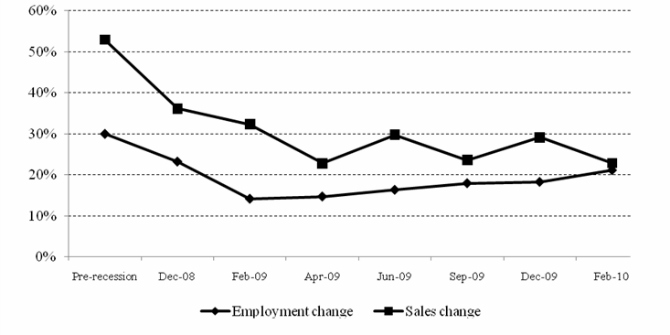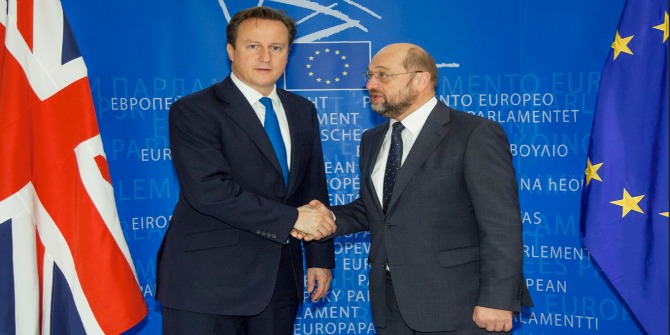Established in the months following the 2011 riots, the Troubled Families Programme set out to ‘turn around’ the lives of the most troublesome and anti-social families in England by the end of the Coalition Government’s term of office. Despite a number of concerns being raised about the approach, no formal evaluation of the programme has published any substantive findings. Stephen Crossley outlines how the large-scale expansion of the policy imposes a one-size-fits-all ‘solution’ on a wide range of vulnerable and marginalised groups without fully knowing the effects.
In his ‘fightback’ speech following the August 2011 riots in England, David Cameron wanted to be clear that the riots were not about poverty, or race, or government cuts. Instead, they were about ‘people with a twisted moral code’. One only needed to ‘join the dots’, he claimed, to understand that bad, or absent, parents were largely responsible for the number of young people involved. Cameron announced he would put rocket boosters under a government programme to turn around the lives of the 120,000 most troubled families within the lifetime of Parliament.
The speech came the day before an independent inquiry into the riots was announced, and seven months before its findings were published.
Not long after, in October 2011, Eric Pickles addressed council leaders to announce details of plans for a new approach to working with troubled families. He encouraged them to think of the programme as a ‘race to deliver by 2015’ and told them that they should ‘be in no doubt – we are in a hurry, we mean to deliver’. In typical straight-talking language he added:
You don’t need to talk about it or show empathy. I want you to get on with it. And I know local government can get results. But understand – this isn’t either or. We are going to deliver on this. So get moving.
Four months later the new government programme was officially launched. The Troubled Families Programme would use an off-the-shelf family intervention approach, which sees a single keyworker working intensively with families ‘from the inside out’, in order to ‘turn around’ their lives. This approach was popularised during New Labour’s obsession with ‘Respect’, but the approach, and the research surrounding it, has previously been criticised as a classic case of policy-based evidence.
Louise Casey, former head of the Anti-Social Behaviour Unit under Tony Blair, was appointed to lead the programme. Research about families experiencing ‘multiple disadvantages’, such as poverty, poor housing and maternal mental health, published by the Labour government four years previously was hastily dusted off and re-presented as evidence that there were 120,000 families characterised by high levels of worklessness, crime, anti-social behaviour and school exclusions.
After only 1 per cent of troubled families had been ‘turned around’ the government started making plans to expand the programme.
Expansion
In June 2013, barely a year after local authorities had begun working with families under the programme, a massive expansion of the programme was announced. At the time, local authorities were not working with as many families as they had agreed to, and only 1,675 families from 54 local authorities had been ‘turned around’. Ninety eight authorities hadn’t turned around a single family by this stage. The expansion would see local authorities work with an extra 400,000 families under a second phase of the programme, starting in May 2015.
The government rejected a Freedom Of Information request for the research supporting the figure of 400,000 to be published, stating that the figure was clearly an estimate and needed to be developed.
In 2014, the Budget announced that the expansion would be even further accelerated with 40,000 of the additional families to be worked with a year earlier than planned.
Fast policy
The talk of ‘being in a hurry’, the use of available, if potentially ill-fitting research and policy fixes, the acceleration of the second phase of the programme and the inability to defer decisions until better evidence is available is reminiscent of what geographers Jamie Peck and Nik Theodore have called ‘fast policy’. They argue that policies plucked from off-the-shelf – supported by previous ‘evaluations’ of their effectiveness – can shorten implementation timescales and give an illusion of a quick fix, tried and tested model that has been proven to work.
And the intensive Family intervention/troubled families approach is certainly being put to extensive use within the UK government at the current time. The model will have been delivered to over half a million families by the end of the second phase of the programme. In a recent speech on his vision for a ‘smarter state’, David Cameron highlighted the almost perfect success of the Troubled Families Programme and said that other areas could benefit from a similar approach. He said ‘Put simply: it’s now time to progress these ideas further and faster’. In the following sentence he talked about the need for ‘reform of social services and child protection’. Recently, the Institute for Public Policy Research think-tank proposed a ‘Troubled Lives’ programme for individuals experiencing homelessness and/or drug addiction and some local authorities have already issued a tender for a Troubled Adults service.
All this expansion is happening when evaluation of the first phase of the programme, or indeed any part of it, is yet to be published. In fact, the only aspect of the entire programme where time appears not to be an issue is the publication of evaluation. The government have refused to state when the evaluation will be published, stating only that this will be done ‘once we have completed the necessary quality assurance processes’ and that publication will be ‘within 12 weeks of final sign-off in accordance with Government Statistical Research guidelines’.
This approach is entirely justifiable, but is at odds with an approach to policy development which appears to enjoy the white-knuckle ride of imposing a one-size-fits-all ‘solution’ on a wide range of vulnerable and marginalised groups without fully knowing the effects. A recent refusal to investigate the effect on people’s mental health of sanctions within the benefits system suggests the ‘fast policy’ mentality extends into other governmental departments. The government appears to be more interested in reaching the destination of a ‘smarter’ and more ‘efficient’ – or cheaper – state than it is in understanding the consequences of attempting to get there in the shortest possible timescale.
___
Please note: the article represents the views of the author and not those of the British Politics and Policy blog nor of the LSE. Please read our comments policy before posting.
___
Stephen Crossley is a PhD student in the School of Applied Social Sciences at Durham University. He is the author of a briefing note, released today and published by the Centre for Crime and Justice Studies, which traces the history of the Troubled Family Programme and questions claims of success made by government and their problematic use of data. The release of this report was covered in The Guardian. He also has a recent journal article on understanding the programme as neoliberal governance and he blogs and tweets @akindoftrouble








“Established in the months following the 2011 riots, the Troubled Families Programme set out to ‘turn around’ the lives of the most troublesome and anti-social families in England by the end of the Coalition Government’s term of office”.
For some reason the words clockwork, and Orange came directly into my head when I read this sentence.